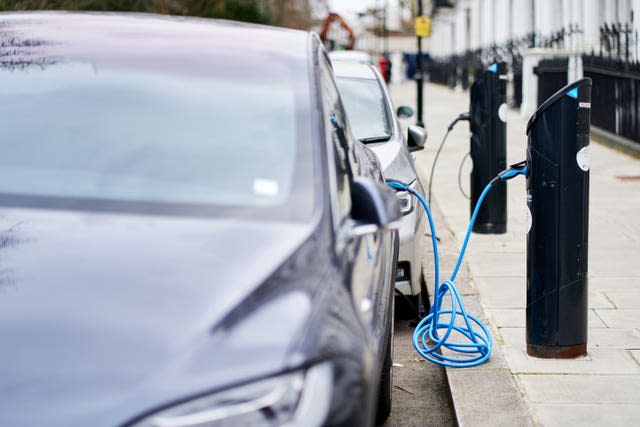More than seven in 10 councils have no electric car transition plan
More than 7 in 10 British isles councils have not revealed electric car or truck (EV) transition plans regardless of being inspired to do so by the Federal government, an investigation has located.
Responses to freedom of information and facts requests by the FairCharge marketing campaign shared with the PA information company discovered 28% of neighborhood authorities have released a tactic for supporting the swap to electric motoring.
A even further 23% mentioned they are in the procedure of devising a prepare.
London is the region with the best proportion of councils with a printed technique, at 57%.

It is adopted by the West Midlands (44%), Scotland (38%) and the North West (30%).
At the other conclude of the scale are Northern Ireland (%), the East Midlands (10%) and Wales (13%).
The Section for Transport’s (DfT) EV Infrastructure System, released past thirty day period, said the Governing administration will “transform community on-street charging by placing an obligation on neighborhood authorities (matter to session) to develop and put into practice neighborhood charging strategies”.
The doc extra that community leadership is “essential to making new investment alternatives and inspiring area self confidence in EVs”.
In a new reaction to a parliamentary issue on EVs, minister for power, cleanse development and local weather transform Greg Palms explained the Federal government will “monitor and have interaction with community authorities as they progress with their strategies”.
FairCharge spokesman Quentin Willson, a previous Top rated Equipment presenter, reported: “The figures exposed from councils in our freedom of details requests are really stressing.
“BEIS (Division for Organization, Vitality and Industrial System) and DfT say that nearby authorities are finest placed to think about area desires.
“This of course is accurate, but we can see right now that devoid of a major job for central government in supporting councils, there is a genuine possibility that considerably of nation will be left powering in terms of public charging infrastructure.
“Councils clearly need to up their recreation as well, but there requirements to be path and oversight from central authorities.”
EV proprietors without the need of accessibility to off-highway parking at home normally depend on community chargepoints mounted by councils.
Mr Willson went on: “The figures are so about since they indicate that several persons – this kind of as those without the need of driveways – will be hindered from getting section in the EV revolution.
“This is simply just unfair and will maintain us again in our endeavours to decarbonise transport.
“The Government should really waste no time in inserting a statutory duty on local authorities to make EV transition techniques.”
The sale of new petrol and diesel vehicles and vans will be banned in the British isles from 2030.
Plug-in vehicles – which incorporate pure electrics and plug-in hybrids – accounted for much more than a person in 6 new cars registered in the British isles in 2021.
Neighborhood Govt Affiliation transportation spokesman David Renard stated: “Decarbonising the way we vacation is a precedence for councils, and that involves supporting the transition to electric cars.
“Councils recognise that they have an vital purpose to participate in in the provision of electric powered car chargepoints but there are important limitations that will need to be get over, such as obtain to funding, to skills and connections to the grid.
“There are also money threats to councils and neighborhood taxpayers specified that this is still an rising industry and technological innovation, and how men and women will charge proceeds to adjust.
“We are pleased, nonetheless, that the nationwide strategy recognises these boundaries and has begun to address them.
“The LGA will carry on to get the job done with OZEV (the Office for Zero Emission Automobiles) and councils to assure that they get the help that they require in the rollout of this vital infrastructure.”







